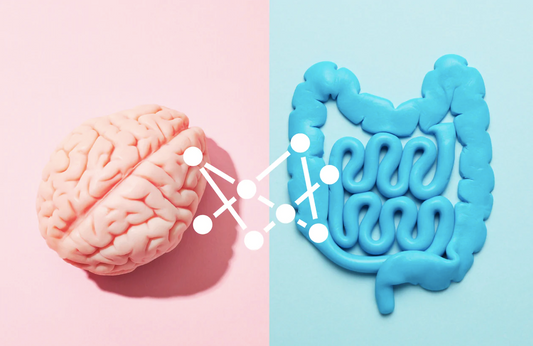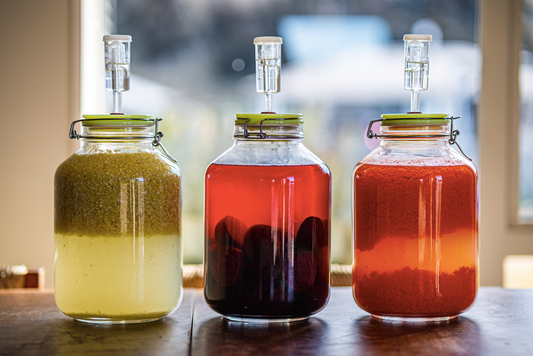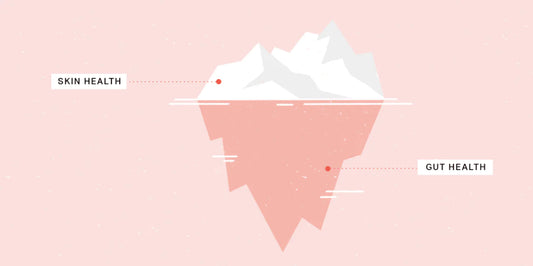Ah menopause, the uninvited house guest that takes up residence in your body and takes your hormones for a spin.
Despite it being a completely natural part of the aging process, reaching this milestone can be pretty daunting.
It’s not all doom and gloom though, the good news is there are many things you can do to support your health during this new chapter.
Think of these tools as a way to move your house guest to a cabin outside instead of the main house - they’re still there but don’t bother you so much.
What is menopause?
Before we get into the juicy stuff, let’s go through a quick science lesson to understand the biological changes that occur during menopause.
Menopause is characterised by the loss of a woman’s period for 12 consecutive months. It usually occurs around the age of 51 but women can experience symptoms up to several years prior in a transitional phase known as perimenopause.
As you enter perimenopause, the supply of mature eggs in your ovaries diminishes and ovulation becomes irregular. As well as this, your reproductive hormones, estrogen and progesterone, start to decrease.
This large drop in estrogen has been linked to many perimenopausal symptoms such as hot flushes, trouble sleeping, and incontinence.
How does menopause affect our health?
Aside from making us sweaty messes and unable to jump on a trampoline without wetting ourselves, menopause has some other interesting effects on our health.
For example, during menopause, women may experience a reduction in bone mineral density and muscle mass. It’s also normal to experience increased levels of stress or anxiety due to fluctuating hormones (similarly experienced during pregnancy).
These examples highlight the importance of taking care of both our physical and mental well-being during this time. How do we do that you ask? Let’s dive in!
The importance of nourishing food
We all know that eating a nutrient-rich diet has huge benefits for our overall health. BUT did you know that menopause is associated with an increased prevalence of obesity, metabolic syndrome, and cardiovascular disease? As a result, our diet plays an increasingly important role in keeping us healthy. Here are some top tips for a supportive diet:
Eat a Mediterranean-style diet - Think of fruit, vegetables, nuts, seeds, oily fish, lean meats and olive oil. Rich in macro and micro-nutrients, research suggests that following a healthy diet similar to this can help maintain a healthy weight and reduce the risk of developing metabolic disorders.
Focus on protein - Due to changes in muscle mass during menopause, eating adequate protein is pivotal in maintaining muscle as you age and reducing the risk of osteoporosis. A good rule of thumb is to aim for between 1.4-2g per kg of your bodyweight per day. Great sources of protein include lean meats, greek yoghurt, cottage cheese, eggs, and plant-based sources such as tofu and beans/legumes.
Variety is the spice of life - The gut microbiome is home to millions of species that help to create a happy home for us to function. Eating a variety of foods can help to increase this diversity and protect us against some of the symptoms of menopause. Try introducing fruits & vegetables that you don’t normally eat, as well as fermented foods such as kimchi, sauerkraut or Clover Ferments tonics.

How to manage stress during menopause
Developing a mindfulness routine is a great way to manage the stress that comes along with the transition. Here are some helpful ideas:
Practice sleep hygiene -This refers to activities you perform before bed to help your body get into rest mode. It can include drinking a warm cup of herbal tea, reading, stretching, etc. Better sleep = better management of what the next day throws at you.
Try meditating - Even if it’s 5-10 minutes a day, sitting with yourself and breathing can have amazing benefits on your mental and physical health.
Get into nature - Do you ever feel weirdly calm when you enter a forest? It’s because nature has a rhythm that’s super relaxing to us. Try to incorporate more walks and time spent outside each day to reduce your stress levels.

The gut-menopause connection
A really interesting pocket of research that’s emerging is the role gut health plays in managing menopause symptoms.
According to a recent review, menopause is associated with lower gut microbiome diversity, increased gut permeability, and inflammation. On the flip side, diets rich in variety and fermented foods are associated with increased gut microbiome diversity (such as the Mediterranean diet).
To give your gut the love it deserves, we recommend including some fermented foods in your daily diet. Our tonics are a perfect way to do this. Remember, go low and slow and build up from there.

At the end of the day, your new house guest is going to turn up at your door whether you like it or not. The power is in our ability to make small lifestyle changes and build up healthy habits to thrive through the transition and beyond.
You’ve got this!
Steph x
Resources & References
Hopkinsmedicine.org. (2024). Introduction to Menopause. [online] Available at: https://www.hopkinsmedicine.org/health/conditions-and-diseases/introduction-to-menopause [Accessed 9 Jun. 2024].
Greendale, G.A., Lee, N.P. and Arriola, E.R. (1999). The menopause. Lancet, [online] 353(9152), pp.571–580. doi:https://doi.org/10.1016/s0140-6736(98)05352-5.
Perimenopause: The transition into menopause: Health Care for Women International: Vol 17 , No 4 - Get Access. (2024). Health Care for Women International. [online] doi:https://doi.org/10.1080//07399339609516246.
J. Christopher Gallagher (2007). Effect of early menopause on bone mineral density and fractures. Menopause, [online] 14(3), pp.567–571. doi:https://doi.org/10.1097/gme.0b013e31804c793d.
Aliz Erdélyi, Erzsébet Pálfi, László Tűű, Nas, K., Zsuzsanna Szűcs, Török, M., Jakab, A. and Szabolcs Várbíró (2023). The Importance of Nutrition in Menopause and Perimenopause—A Review. Nutrients, [online] 16(1), pp.27–27. doi:https://doi.org/10.3390/nu16010027.
Spotlight on the Gut Microbiome in Menopause: Current Insights. (2022). International Journal of Women’s Health. [online] doi:https://doi.org/10.2147//IJWH.S340491.
Shieh, A., Epeldegui, M., Karlamangla, A.S. and Greendale, G.A. (2020). Gut permeability, inflammation, and bone density across the menopause transition. JCI insight, [online] 5(2). doi:https://doi.org/10.1172/jci.insight.134092.




